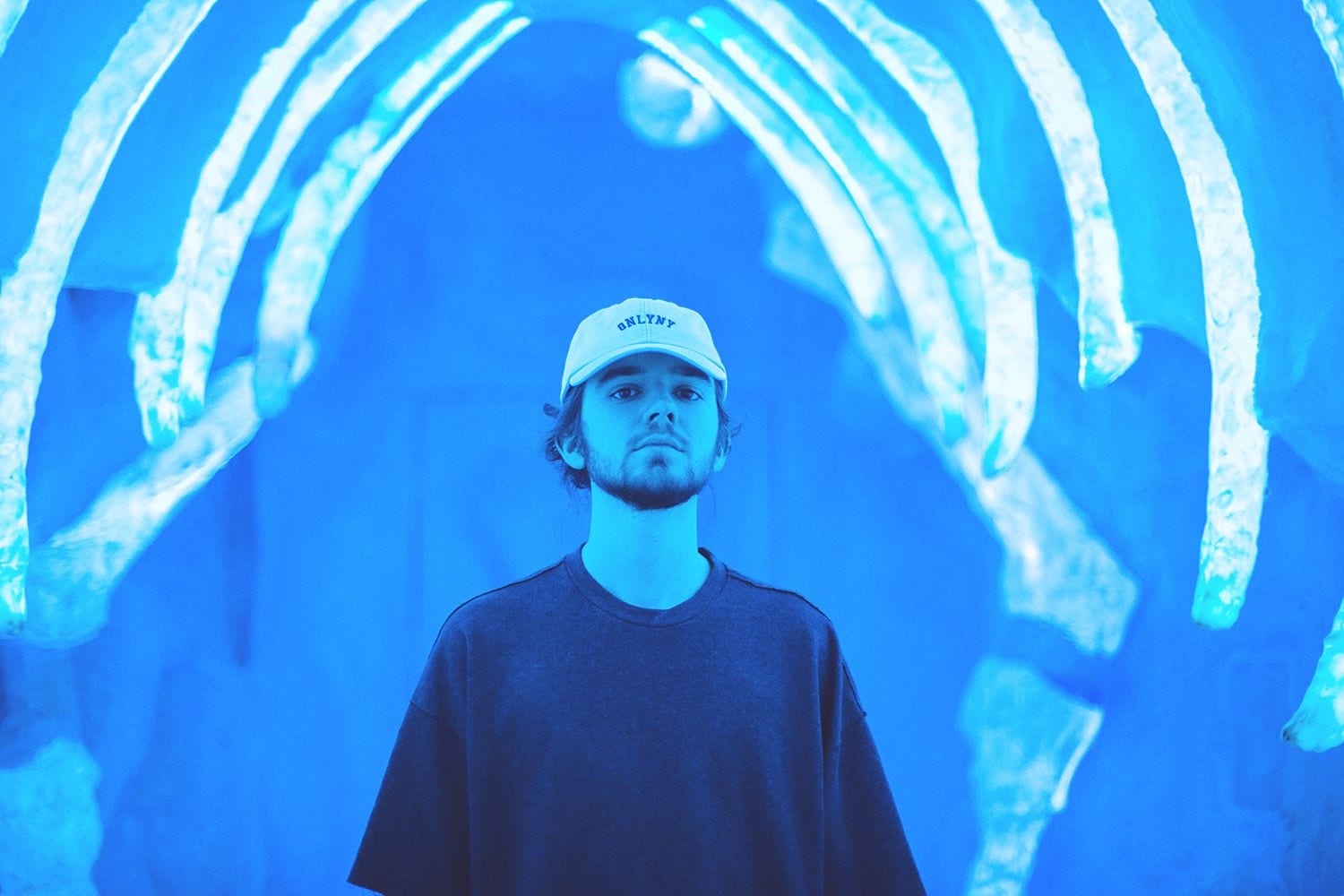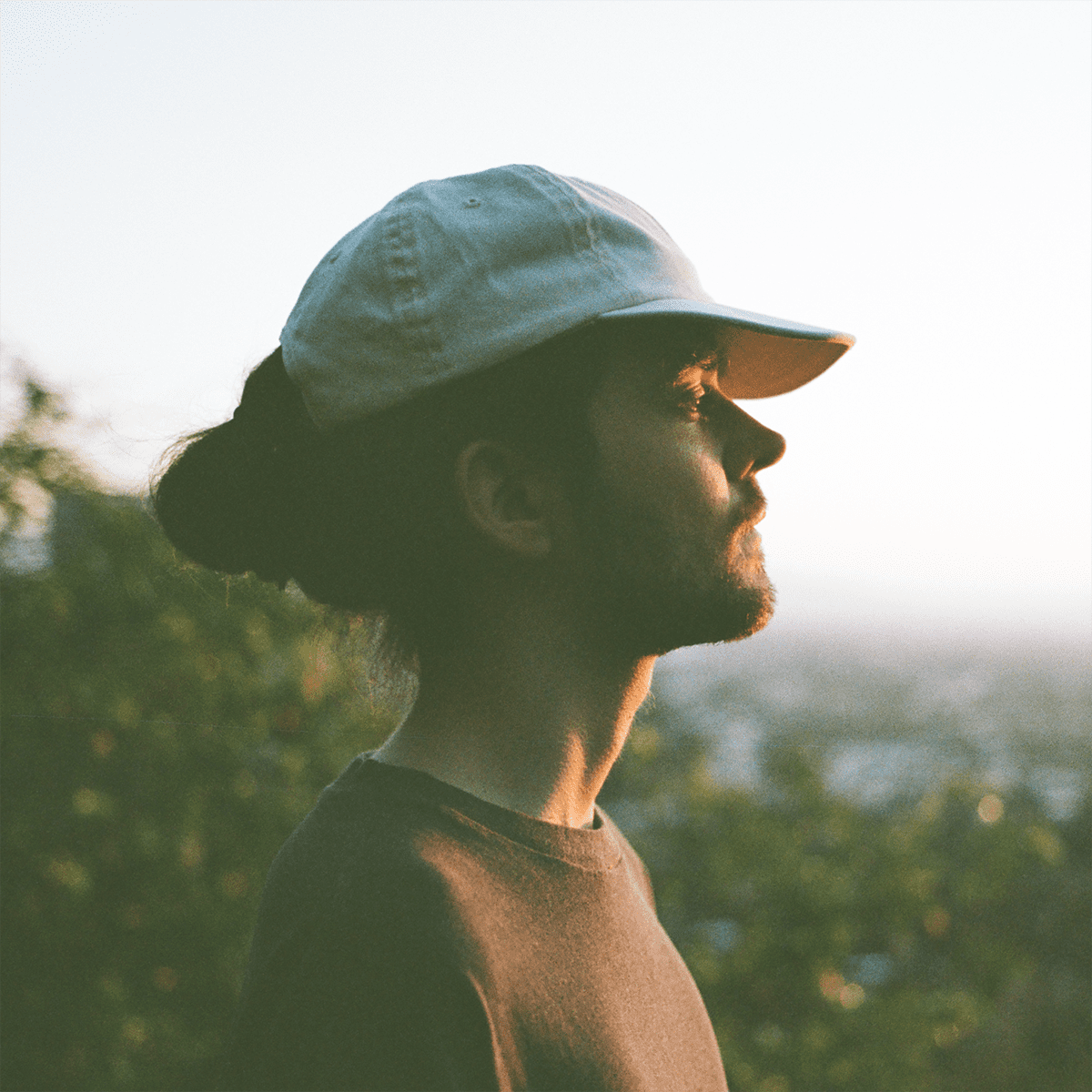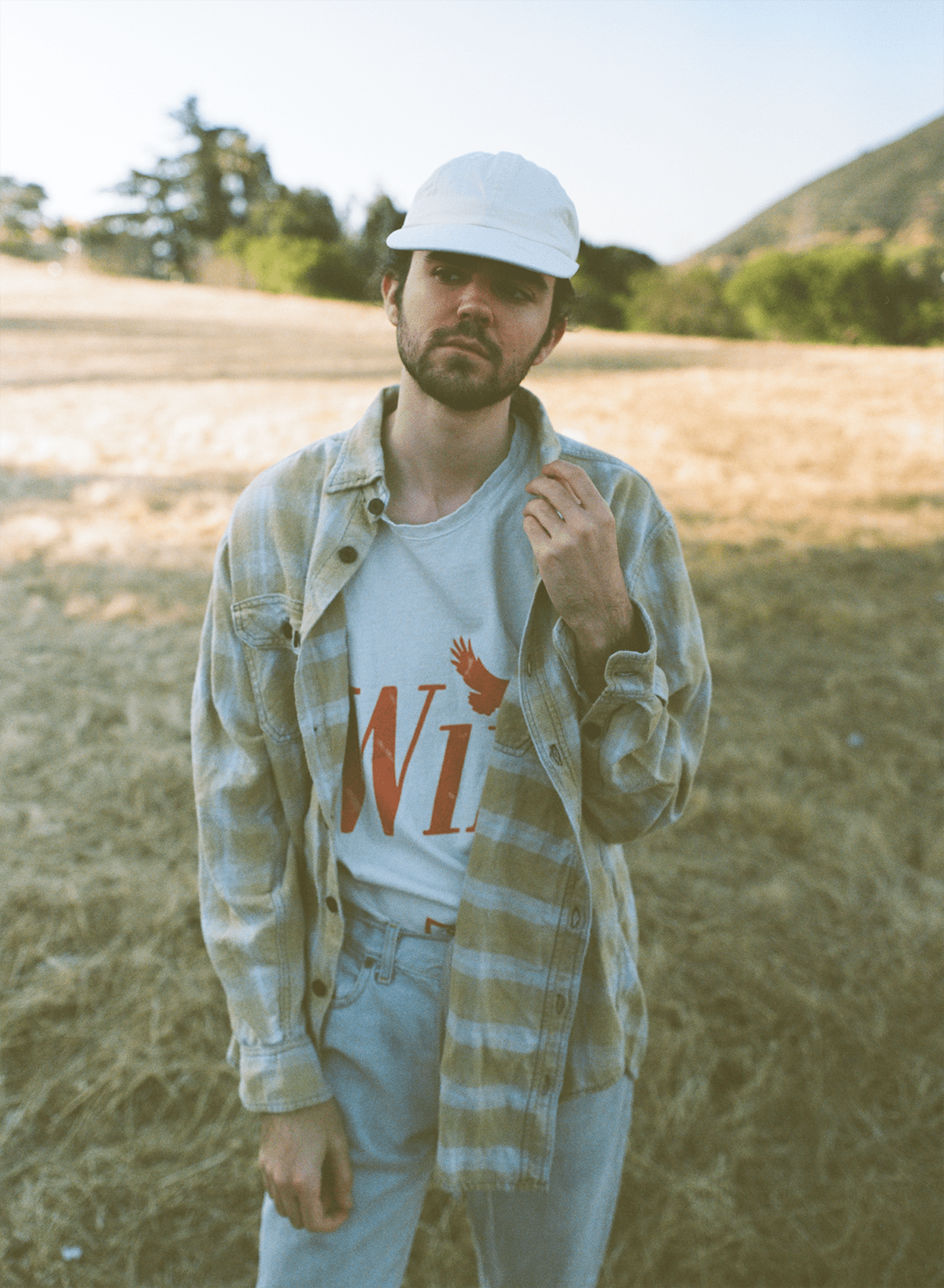
For a time, Madeon shows had a rare kind of magic, one where people who had a shared love of the French DJ got to meet and even formed bands together, all because their shared interested was for this electronic-minded kid born Hugo Leclercq.
After that, however, the shows stopped happening.
It was May of 2015 at the House of Blues in Chicago. Madeon was headlining, with two openers: the hypnotic sounds of the San Francisco progressive house outfit the M Machine and two goofy-looking kids from Chicago (Robby Hauldren and Frederic Kennett) who went by the name Louis the Child. They attacked their pads with an unbridled, almost comical enthusiasm, and at this time, had only a handful of remixes to their name. A few years down the line, they’d get signed to big labels like Ultra and Interscope and develop a large dance following all their own.
Of course, Madeon knew their fate even then. How could he not? They met at a Madeon show.
“I remember my tour manager and I were gushing like ‘Oh my god, they don’t know what they’re about to do!’ We knew they were gonna blow up. I was sure of it,” exclaims Leclercq, speaking to PopMatters the week of release for his sophomore studio album, Good Faith.
Light bulb by ColiNOOB (Pixabay License / Pixabay)
“They met each other at one of my shows in Chicago, actually,” Leclercq continues. “It’s such a beautiful story to me — I love knowing it. And since then, we’ve been very supportive of each other, we talk all the time, and I follow their career with great delight. We invited them on tour, and it was so clear that they were onto something special, and they had the right attitude and personality. To me, I was so excited to see them and to know ahead of time all the beautiful things they were about to experience.”
If Leclercq sounds supernaturally confident in his abilities to predict the career starts of upstart dance acts, that’s because he has already gone through this journey for most of his adult life. Finding viral fame with his famed “Pop Culture” mashup from 2011, Madeon was in his teens when remix work came flooding in, soon leading to live shows, a major label deal, and the 2015 release of his debut album, Adventure, a feel-good house-pop album that was full of personality, catchy melodies, and vocal collaborations with indie-rock luminaries like Bastille’s Dan Smith and Passion Pit.
Yet following the independent release of “Shelter” — his hit collaboration with Porter Robinson in 2016 that proved to be his most critically acclaimed recording as well as his best-selling — Leclercq went quiet. He toured Shelter for the start of 2017 and played a few festival dates thereafter, but there was no major movement after that. No new originals or even remixes. The entirety of 2018 had him play a single New Years’ Eve gig, leading many to wonder where this electropop wunderkind has gone.
Answers came in the form of the new song “All My Friends” in May of 2019, followed by the superb “Dream Dream Dream” in July. Then in October, Madeon formally broke his silence and posted on his socials that following his big Lollapalooza show, “I was more spent and depressed than I expected. I couldn’t feel anything at all. It felt wrong finishing and releasing music, celebrating joy when I couldn’t feel that joy at all anymore. So I decided to take time and put everything on hold for a bit. I felt like I had your permission.”

With the dawn of Good Faith coming, I kept circling back to this idea of asking permission from your audience. Even during that House of Blues set in 2015, he asked for permission about two-thirds through his set to “try something new”, which ended up being a true solo piano interlude with no other accompaniment. It seems that Leclercq has a very unique relationship with his audience, and when I bring it up to him, he absolutely agrees.
“I feel like I meet my fans a lot,” he explains, “So whenever I’m on tour, I can be outside and meet the fans that are waiting, and it’s a great way to feel how in line you are between your intention, your vision, and your audience. [They’re] very dedicated, and all of the messages I was putting out and all of the intention of Madeon was being really well understood. I know with audio sometimes maybe, you know, certain types of music can please the fans somewhat cynically, and I feel like I never really have to do that. I feel like I can do whatever I want and know that they’ll give it a shot, and they’ll hopefully understand where I’m coming from. I feel very enabled to move towards my vision, and offer something substantial and sincere.
“Another sign to me is when I did my collaboration with Porter Robinson, ‘Shelter’, we decided we were going to do it ourselves, we released it independently, we wrote everything (like the lyrics) with no extra songwriters or anything. We’re not trying to play by the rules of how you normally get a hit in the dance music space. We just did it ourselves — we sang, we wrote — and it went gold! It was our biggest hit. So I realized, ‘You know what? I don’t need to play by any rules other than the ones of my heart.’ If that makes sense. I can do what feels right.”
Good Faith marks a distinct evolution in the sound Madeon, where he is moving away from sheer pop exuberance for something more contemplative and emotionally resonant. He’s still chopping up vocals and putting them over thumping beats, but this time there’s more gospel choirs than there are pitch-shifted samples, more mid-tempo jams then there are four-on-the-floor bursts of excitement. Even more than that, Leclercq has largely moved away from guest features, singing all but one song himself.
Photo: Diego Andrade / Courtesy of Columbia Records
“I just felt like I wanted to make an artist album rather than a producer album,” he says. “So I wanted to write every song and pretty much sing all of them and make sure it was similar to an artist album rather than a producer album that just featured people. That wasn’t the case on my first album. It [had] only like five features, and I love them all dearly, you know? But I didn’t feel the urge to do that again.
“I didn’t feel like that’s was most excited about, especially after ‘Shelter’. During the Shelter Tour, singing that song, seeing people connect with lyrics that were so personal — [it] was more touching than being a vehicle for someone else’s message, if that makes sense? I realized I was more interested in embodying the project and being in front of [the crowd]. Even in the [upcoming] shows, we designed it so that it very much has me unobstructed. There’s no table. I want to feel like a frontman. I want that sensation, and I feel so much more elated. I feel so much more connected to my audience that way than I did in the past. It just felt really natural to me.”
This sense of comfort he has with exposing his emotions and personal journey comes through on tracks like “Heavy with Hoping”, where the lyrics hint at putting your happiness — and just about everything else about you — into a partner that has moved on from you even if you haven’t moved on from them. The production has a slow, nervous build, with the vocal performance something that can only be described as aching. Actually, there’s another way you can describe it: Leclercq does not even sing it.
“This is the only song I’m not singing!” he exclaims when asked about it. “It was performed by Audra Mae, who is an amazing songwriter and an incredible singer. She did one take of the song. We had her do one take, and she left. So what I did is that in the process of producing that song, I was trying to do a [more] traditional, classic ballad, and I wanted to anonymize it and make it a little bit mysterious like it came from nowhere. So I processed her vocals in a way that makes it kind of anonymous. Other people have been telling me that I should really clarify ‘OMG that’s not my vocal take’. But it’s a great hint of the type of stuff I want to do in the future, collaborating with people again, trying to find novel ways to collaborate. Not just collaborate for the sake of having a name or something. [I want] something that feels fun and experimental and unusual and exciting for some reason or another. “

With song titles like “Miracle” and “Nirvana” lyrics featuring repeated refrains like “I feel the weight of my dreams”, and the whole project operating under the banner of Good Faith, one can be forgiven for thinking that Leclercq has turned in a religious album. Yet the way he describes it, may not be religious so much as it is deeply, personally spiritual.
“You know, I definitely weighted my words when I decided to call it Good Faith,” Leclercq explains. “What I love about it is that ‘good’ is a very powerful word, and ‘faith’ is a very powerful word, and together they become something that is only trivial but underlining [the concept of] profound trust. I think cultural/religious vocabulary is something that’s been incredibly alive in my background for a while, and I think that it is powerful and profound and evocative. In making the album, I worked with some gospel singers. I got to meet and talk [with them] spiritually and personally and got to see that even though we had different lifestyles, there were a lot of things we felt connected on. I felt like some of the general values of trust and love were just expressed through their vocabulary, and it was a real grounding [experience] that was moving to me.
“It’s an album about my love of the world but also about my journey to understand my mental health a little bit and some of its unique characteristics,” he continues. “What’s cool about it is that I find that people are interpreting this work in many different ways — and I think they’re all pretty valid. This was made over a fairly long period of time, and I became a different person over the course of it. So it changed its palette and its sound and its aesthetical intention along the way, but what that aesthetic meant changed over time because I feel like I understood better what I was making and why I was making it and from which place it was coming from. So all of those themes are all valid: they’re all things I’ve considered at some point in the process of making it.”
From the way Leclercq speaks about it, the process for Good Faith was one of intense revision, one where he can’t even name what the first song is that he worked on because all of the songs changed so much that it was hard to pin down a “starting place”.

“It’s hard to know the exact chronology of which song I made when, because a lot of them were rewritten and reinvented. ‘Be Fine’ is a good example: it’s a song I originally made for a certain situation quite a while ago. I struggled with it because I liked the production, but I felt like the song was fairly trivial, and I couldn’t understand what the song was about that I was making. So I kind of put it aside for a while, and then as I came to make myself better, the theme of it became more apparent because I remember I it being originally about joy, and I was trying to work on it when I felt depressed. It felt very insincere and very dangerous, and eventually, I just threw away all the lyrics, and I just rewrote the song inside out about a joy that is more dangerous, of a joy that costs, a joy that’s maybe fleeting and untrue. In questioning myself about what that it meant about how fleeting and uncomfortable it is — how valid was it? What did it say about my well being, you know? As I came to make myself better, it became way easier to write and finish a lot of these songs.”
Throughout our conversation, Leclercq sometimes speaks so quickly and with so much enthusiasm that he stumbles over his own words. He’s genuinely excited to share his new album with the world. Leclercq is also unafraid to show his fans the trials he went through to get to Good Faith, appreciative of the fact that he was away for so long and there was still an audience waiting for him on the other end. When I mention his one-time tourmate (and beloved pop music savant) Skylar Spence, Leclercq lights up, immediately heaping praise upon him. “I love him to death, I miss him dearly, and touring with him is one of the most fun times of my life, and his music is fantastic!” He reacted carefully to a mention of the time Spence tweeted about some fan fiction someone wrote about the two of them. “I’m super-interested in the fan experience […] but some things I think are safer outside of the realm of my imagination.” As serious as Leclercq’s journey was, he’s still very much up for having fun, especially on his new nationwide tour supporting the album.
Photo: Diego Andrade / Courtesy of Columbia Records
With his new setup and his new outlook, he seems almost eager to put himself out there, which is perhaps why one of the songs on the album is called “No Fear No More”. “I think, in the past, I was very cautious about what I was sharing about myself, and I felt like it maybe came across as a little dull,” Leclercq admits.
“And I realized that the people who knew me intimately had a very very different impression of who I was and what my life is, and I realized that there’s not really such a distinction between Madeon and Hugo. Madeon is the vast majority of my life and my time, and with this album, with the intention of embodying it and not hiding and being more present in it and being that project, it felt like ‘OK, yeah, I need to be a little bit more confident here, maybe a little bit warm’ — because otherwise my life won’t feel authentic at all if I don’t make myself understood. This album, what I was trying to create, was ultimately introspective, so it shouldn’t be a careful self-construction of sorts but rather a reflection of who I am. And I think people these days are appreciative of that. It just makes sense to just express more.”
And now, as he crisscrosses the country performing his most honest material to date, we can’t help but wonder what other bands are going to form because they met in the audience of a Madeon show.




